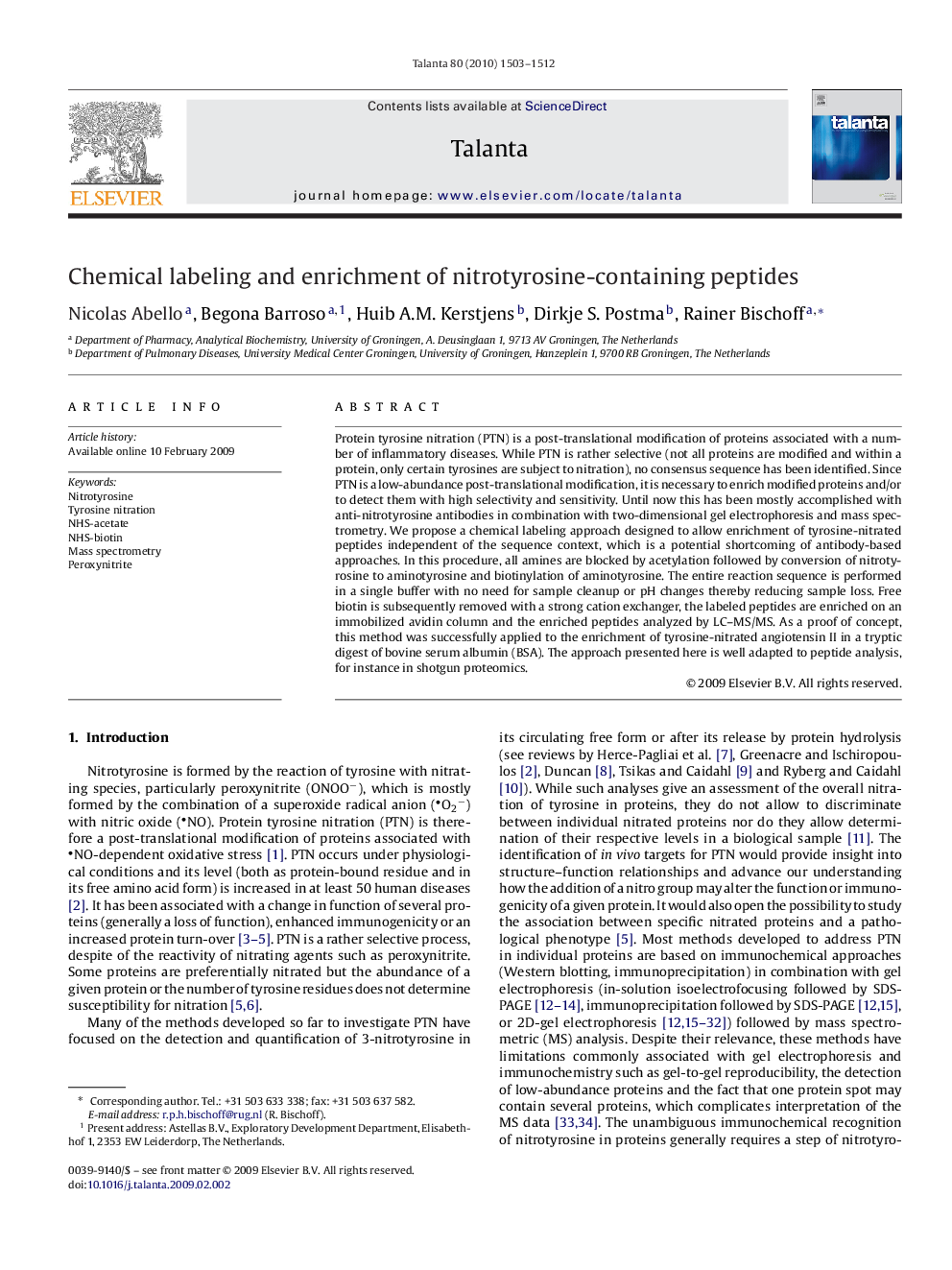| Article ID | Journal | Published Year | Pages | File Type |
|---|---|---|---|---|
| 1243207 | Talanta | 2010 | 10 Pages |
Protein tyrosine nitration (PTN) is a post-translational modification of proteins associated with a number of inflammatory diseases. While PTN is rather selective (not all proteins are modified and within a protein, only certain tyrosines are subject to nitration), no consensus sequence has been identified. Since PTN is a low-abundance post-translational modification, it is necessary to enrich modified proteins and/or to detect them with high selectivity and sensitivity. Until now this has been mostly accomplished with anti-nitrotyrosine antibodies in combination with two-dimensional gel electrophoresis and mass spectrometry. We propose a chemical labeling approach designed to allow enrichment of tyrosine-nitrated peptides independent of the sequence context, which is a potential shortcoming of antibody-based approaches. In this procedure, all amines are blocked by acetylation followed by conversion of nitrotyrosine to aminotyrosine and biotinylation of aminotyrosine. The entire reaction sequence is performed in a single buffer with no need for sample cleanup or pH changes thereby reducing sample loss. Free biotin is subsequently removed with a strong cation exchanger, the labeled peptides are enriched on an immobilized avidin column and the enriched peptides analyzed by LC–MS/MS. As a proof of concept, this method was successfully applied to the enrichment of tyrosine-nitrated angiotensin II in a tryptic digest of bovine serum albumin (BSA). The approach presented here is well adapted to peptide analysis, for instance in shotgun proteomics.
